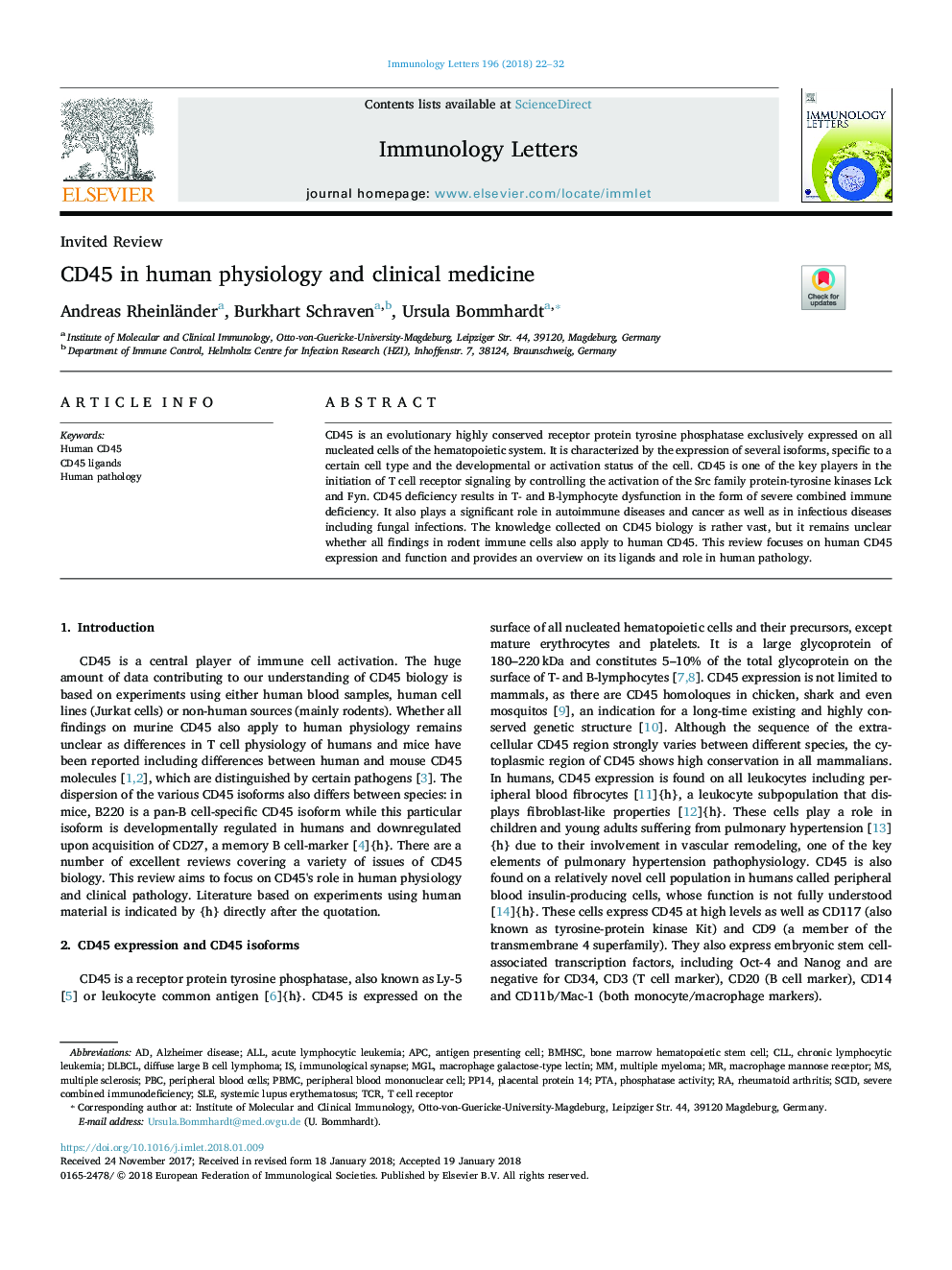| Article ID | Journal | Published Year | Pages | File Type |
|---|---|---|---|---|
| 8738322 | Immunology Letters | 2018 | 11 Pages |
Abstract
CD45 is an evolutionary highly conserved receptor protein tyrosine phosphatase exclusively expressed on all nucleated cells of the hematopoietic system. It is characterized by the expression of several isoforms, specific to a certain cell type and the developmental or activation status of the cell. CD45 is one of the key players in the initiation of T cell receptor signaling by controlling the activation of the Src family protein-tyrosine kinases Lck and Fyn. CD45 deficiency results in T- and B-lymphocyte dysfunction in the form of severe combined immune deficiency. It also plays a significant role in autoimmune diseases and cancer as well as in infectious diseases including fungal infections. The knowledge collected on CD45 biology is rather vast, but it remains unclear whether all findings in rodent immune cells also apply to human CD45. This review focuses on human CD45 expression and function and provides an overview on its ligands and role in human pathology.
Keywords
SCIDCLLPBCmGlDLBCLPP14PTAAPCTCrPBMCmacrophage galactose-type lectinRheumatoid arthritisHuman pathologyAlzheimer diseasePeripheral blood mononuclear cellperipheral blood cellsantigen presenting cellImmunological synapsePhosphatase activityDiffuse large B cell lymphomaacute lymphocytic leukemiaChronic lymphocytic leukemiaSystemic lupus erythematosusSLEMultiple sclerosisMultiple myelomaALLplacental protein 14severe combined immunodeficiencyT cell receptorMacrophage mannose receptor
Related Topics
Life Sciences
Immunology and Microbiology
Immunology
Authors
Andreas Rheinländer, Burkhart Schraven, Ursula Bommhardt,
